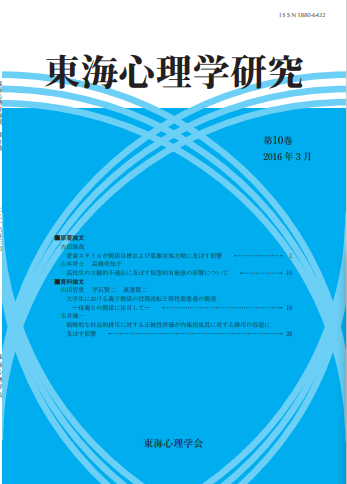10 巻
選択された号の論文の4件中1~4を表示しています
- |<
- <
- 1
- >
- >|
原著論文
-
原稿種別: 原著
2016 年 10 巻 p. 1-9
発行日: 2016年
公開日: 2023/05/10
PDF形式でダウンロード (495K) -
原稿種別: 原著
2016 年 10 巻 p. 10-18
発行日: 2016年
公開日: 2023/05/10
PDF形式でダウンロード (550K)
資料論文
-
原稿種別: 資料
2016 年 10 巻 p. 19-27
発行日: 2016年
公開日: 2023/05/10
PDF形式でダウンロード (539K) -
原稿種別: 資料
2016 年 10 巻 p. 28-35
発行日: 2016年
公開日: 2023/05/10
PDF形式でダウンロード (486K)
- |<
- <
- 1
- >
- >|
